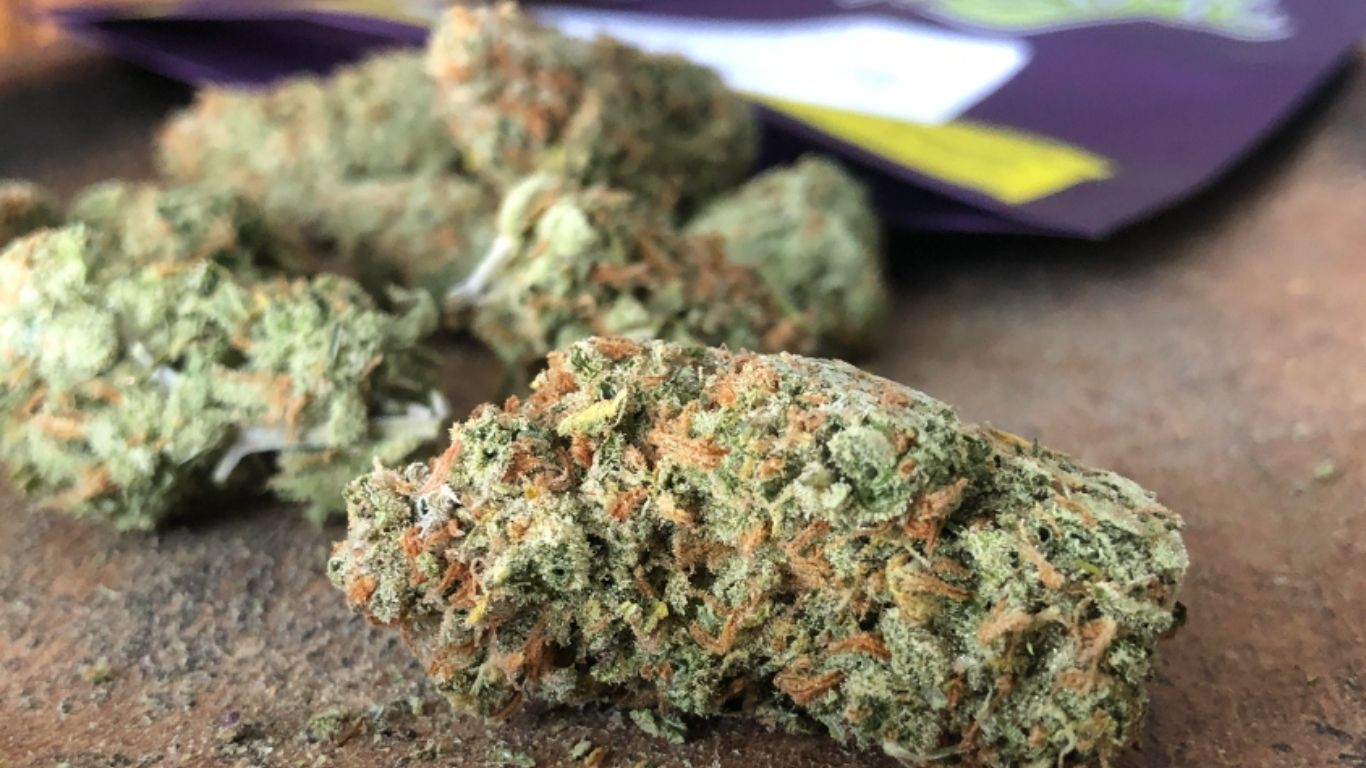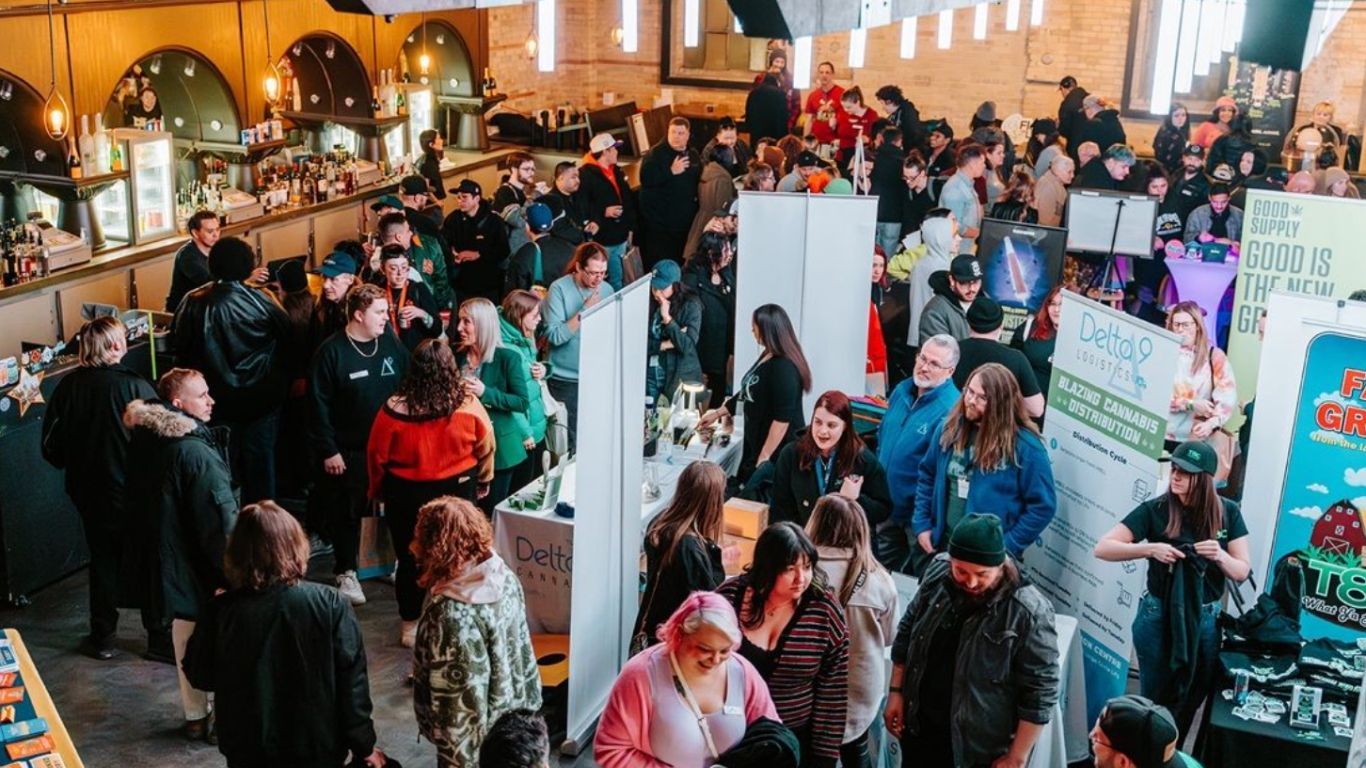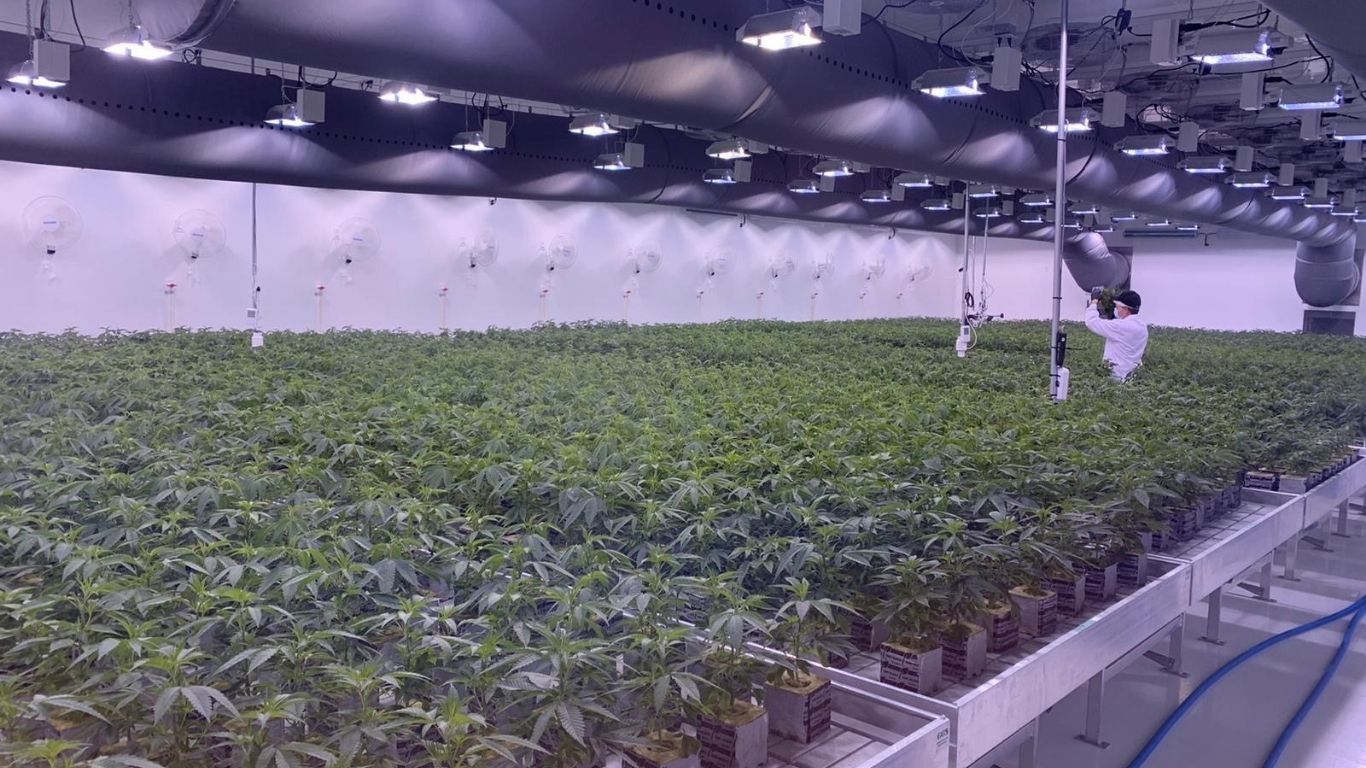
Business owners in several First Nations communities in British Columbia say they have seen a recent, positive shift in how the provincial government has been working with Indigenous cannabis businesses to find a path into the legal cannabis industry.
While some Indigenous communities in BC have argued that federal and provincial cannabis rules do not apply on their lands, others say they are choosing to work with both the federal and provincial regulators to find a more sustainable path towards economic development and even reconciliation.
Sugar Cane Cannabis
One such community that has made that shift is the Williams Lake First Nation (WLFN), which entered into an agreement with the province last year to support the community’s efforts to operate a cannabis production and retail farmgate operation. The community had originally been home to an unlicensed cannabis retailer, Indigenous Bloom, but opted to close that store down and reopen again under provincial rules as Unity Cannabis.
The First Nation has also nearly finished construction of their own micro cultivation and processing facility, called Sugar Cane Cannabis, right next door to Unity Cannabis, and signed an agreement with the province last year that would allow them to operate a cannabis farmgate retail location out of the same building once fully licensed by Health Canada.
Last year the community signed the agreement under section 119 of BC’s Cannabis Control and Licensing Act, the first of its kind in Canada. The BC Government also announced a $500,000 grant for their Sugar Cane micro cannabis facility and farmgate store. Their agreement with the province will also allow them to open up to seven other retail locations in the province.
Section 119 allows the BC government to enter into agreements with an Indigenous nation with respect to cannabis. BC’s Cannabis Control and Licensing Act restricts businesses from operating in both the cannabis production and retail sectors, but the section 119 agreement creates an allowance for this.
“Asserting jurisdiction and eschewing provincial and/or federal law is one way of advancing aboriginal rights and it may in the short run be more lucrative, but operating in this “sovereignty space” is fraught with challenges. There will inevitably be legal or other forms of conflict with the provincial and/or federal government, challenges with financial institutions and insurers and potential issues with product quality and organized crime.”
Kirk Dressler, CEO of Sugar Cane Cannabis.
Daniel Penny, COO of Sugar Cane Cannabis, says the decision came down to the community’s priorities and their perspective on the direction of the cannabis industry. The hope, he says, is to not only create a viable model for their community but one that can help guide other First Nations in BC.
“When WLFN first got into the cannabis space, there was first an Indigenous Bloom store on our land,” he explains. “Basically, we decided that the future of cannabis was going to be through these section 119 agreements. Then, we would just like to show other First Nations the process—how to work successfully with the government, operate with safe and regulated products through our stores, and offer long-term viability for jobs for all our staff.”
While some First Nations communities in Canada, including those in BC, have argued that they are not accountable to federal and provincial cannabis rules, and while some have even begun implementing their own regulatory regimes, those like the WLFN say they feel the best path forward for their community is to work within these rules to fully embrace economic opportunities.
The BC government has maintained that BC’s Cannabis Control and Licensing Act is a “law of general application”’ that applies to all of British Columbia including First Nations land, but last year Minister of Public Safety and Solicitor General Mike Farnworth said the province was hesitant to enforce those rules on First Nations land for fear of court challenges.
“When you have an issue where there is a dispute over jurisdiction, as a number of First Nations have indicated,” said Farnworth at the time, “it is their view that cannabis comes under their jurisdiction – this is a complex and complicated situation. It is something that has not just arisen. It has been around for a while, and we are working with First Nations to be able to deal with that. It’s why one of the ways in which we are encouraging legal production or legal retail is through the use of Section 119 agreements under the Act, which were designed to do just that.”
Penny says they’ve already begun talks with many other communities who want to learn from their approach.
“We have been receiving a lot of phone calls,” he says. “Every week we received more calls. We love to work with other First Nations, and anyone in general, to get into the cannabis space. We think the micro cultivation route is a great way to get the most talented growers into the industry, so we hope that the barriers, from the regulatory standpoint and the cost standpoint, things like banking, and all these other things you need to make the business flow will become easier. And we’re willing to work with anyone, specifically other First Nations who would like to move forward with this model.”
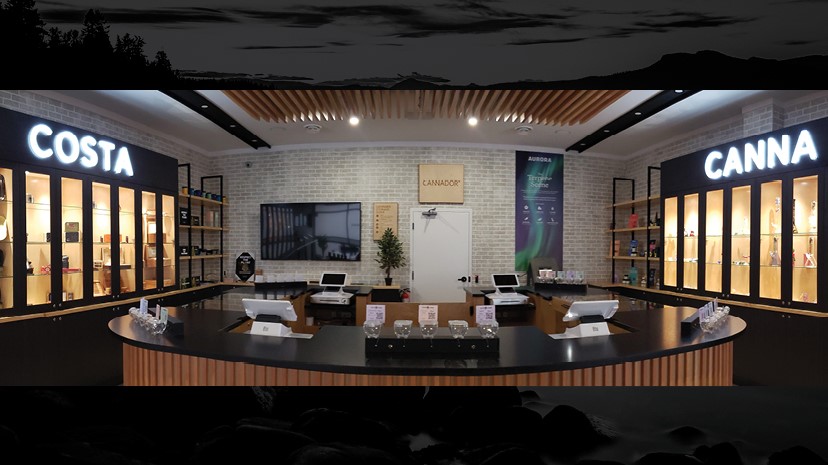
Kirk Dressler, CEO of Sugar Cane Cannabis, says any First Nation seeking to get involved in the cannabis industry needs to consider their goals. Are they seeking economic opportunities or advancing Aboriginal rights? While ignoring federal and provincial rules may be easier in the short run, there are many other downsides in the long run, he says.
“Asserting jurisdiction and eschewing provincial and/or federal law is one way of advancing aboriginal rights and it may in the short run be more lucrative, but operating in this “sovereignty space” is fraught with challenges,” says Dressler. “There will inevitably be legal or other forms of conflict with the provincial and/or federal government, challenges with financial institutions and insurers and potential issues with product quality and organized crime.
“Operating in cannabis retail and/or cultivation through agreement/authorization by provincial and federal governments (in what those governments would call the “white market”) may be less lucrative, but there will be more financial and practical certainty, and there will be less of a threat to employees–who may ultimately lose their jobs and potentially face other sanctions if grey market operations are shut down or otherwise forced to close.”
“They’re calling it the Red Market, not the black or grey market, but the Indigenous Red Market stores that they’re establishing, for us that’s not the path, we are promoting the licensed regime, and the negotiations with the province recently are giving us some optimism that we’re going to get there now.”
Darwin Douglas, CEO of All Nations Cannabis
FN Canna
In Chilliwack, another First Nation community echoes similar sentiments. FN Canna received their licences to cultivate and process cannabis recently from Health Canada in the First Nations community of Shxwha:y near Chilliwack.
Darwin Douglas, CEO of All Nations Cannabis, who helped FN Canna achieve their licence, and Councillor of Cheam First Nation, east of Chilliwack, says he’s seen a marked shift from the BC government in the past few months. Whereas Douglas said the process a year ago was challenging, he says the BC government has become much more willing to work with communities like Shxwha:y and businesses like All Nations, especially when it comes to finding solutions for provincially-regulated cannabis farmgate stores on First Nations land.
Editor’s Note: This article initially stated All Nations Cannabis owned the FN Canna Licence. This has been corrected. They worked with the licence holder to achieve their licence.
“That’s been a long road, it’s been a little bit frustrating at times,” says Douglas,” but I think just in the last month there’s been a significant turn in a positive direction dealing with certain people from the cannabis secretariat that have been very good for those negotiations.”
FN Canna is a 30,000 sq ft facility, half of which is currently licensed for production. Douglas says the facility will employ 20-30 people within the community and bring jobs and economic opportunities to the local First Nations. Now they’re hoping to also sign a section 119 agreement with the province to locate a retail store within the community that can eventually sell FN Canna’s products.
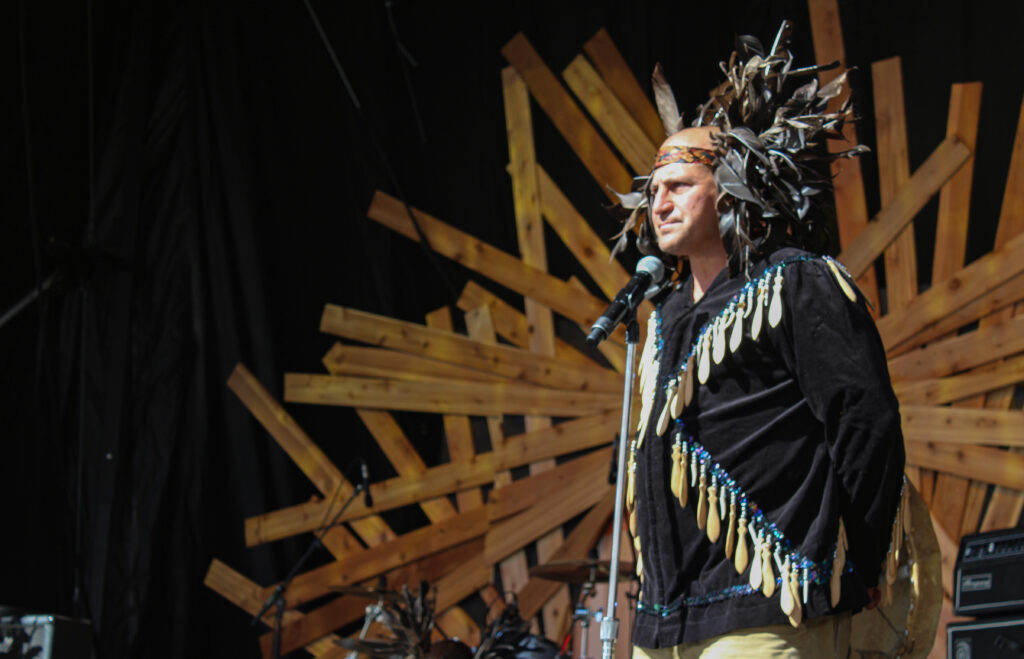
Although the community was also once home to an Indigenous Bloom retail and even a production location, Douglas says the community decided in the last year and a half to end that relationship and pursue a fully legal, licensed approach. While some communities may have been swayed by unregulated retailers arguing they operate outside the provincial jurisdiction, he says some communities like his own have decided that working with other governments will be a more sustainable model.
Douglas notes that some Indigenous Bloom locations had previously changed their name to All Nations Cannabis, but have since removed the name. All Nations Cannabis has no connections to Indigenous Bloom, he explains.
Like the WLFN’s Sugar Cane facility, Douglas says he thinks FN Canna will serve as a guide to other First Nations communities in BC and across Canada who are looking to operate within the federal and provincial rules.
“I think that’s what First Nations are looking for, is a path forward within this regime, so I do think it’s a model that other First Nations could then follow,” he says.
“First Nations are getting more and more sophisticated so they start to understand these things and choose a path that’s a better path for them and has longevity.”
“I’m optimistic now, that we’re going to see more section 119 licenses in the near future,” continues Douglas. “I think that will be good for Indigenous communities and Indigenous entrepreneurs who want to get into the cannabis industry to be able to enter into the licensed cannabis regime, because ultimately we feel that’s the long term path here–through a licensed process under the federal government for cultivation and processing and then harmonizing through section 119 with FN and the province for licensing (retail).”
“I think that will be good for Indigenous communities and Indigenous entrepreneurs who want to get into the cannabis industry to be able to enter into the licensed cannabis regime, because ultimately we feel that’s the long term path here–through a licensed process under the federal government for cultivation and processing and then harmonizing through section 119 with FN and the province for licensing (retail).”
Darwin Douglas, CEO All Nations Cannabis
Douglas says he sees two different paths forming for First Nations in Canada when it comes to the cannabis industry. One being those who are seeking to operate outside the boundaries of federal and provincial regulation, and the other being those who want to work within those jurisdictions. He says he respects those who are taking the former path but sees more benefits in the latter.
“They’re calling it the Red Market, not the black or grey market, but the Indigenous Red Market stores that they’re establishing,” explains Douglas, “for us that’s not the path, we are promoting the licensed regime, and the negotiations with the province recently are giving us some optimism that we’re going to get there now.”
Other First Nation’s cannabis business in BC
In a similar transition, Chilliwack is also home to one of the first provincially-licensed cannabis retail stores in BC, The Kure Cannabis Society. The Kure had originally operated without a provincial licence and, following a raid by the RCMP, opted to close down and apply for a licence. They opened again with full approval from the province in mid-2019.
BC has several other cannabis producers and retailers on or connected to First Nations land. Orange Bridge Cannabis, for example, located on Tseshaht First Nation near Port Alberni, is 100% Tseshaht-owned. Another First Nation in the same region, Hupačasath First Nation, recently acquired a micro cultivation licence last year for a company called Ahahswinis Green.
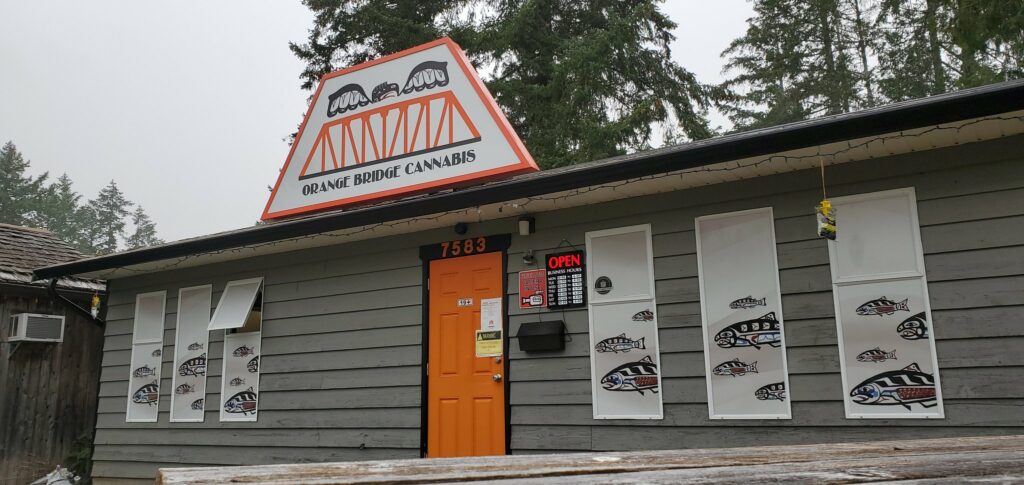
Cowichan Tribes, located on Vancouver Island, has a majority share in four cannabis retail locations called Costa Canna, including one on Cowichan reserve lands and one in nearby Duncan. The Tribe is also a majority shareholder in United Greeneries, a federally-licensed cannabis producer with an indoor production facility in Duncan and an outdoor production space on Cowichan reserve lands. They have also entered into a section 119 agreement with the province late last year to allow them to operate their own retail locations and a production facility.
The one-year agreement creates an exception to the provincial “tied house” rules that prevent a cannabis producer from owning a cannabis retailer and will allow cannabis produced by United Greeneries to be sold in the Costa Canna on Cowichan land.
“I think they did it in a different fashion in the past with things like raids of the stores, and I think they say this caused more problems than anything. So I think they looked to contact the stakeholders and applicants and see what they have to say about this process. And that’s what they have done with us, so I think that’s why we’re seeing talk about farmgate now, and it sounds like more grants for First Nations are coming.”
Albert Eppinga, owner of BC Cannabis Inc
BC Cannabis Inc.
Albert Eppinga, who owns another recently licensed micro cannabis producer, BC Cannabis, located in Sooke, says he is seeing similar positive movement from the BC government when it comes to engagement.
Although BC Cannabis Inc is not located on First Nations land, he is from the community of Haida Gwaii and BC Cannabis is Indigenous-owned. His Haida name is White Eagle from the Eagle Clan. His Sooke location currently has one licensed cannabis cultivation facility and has applications submitted for two more in the same building. He also has plans for a cannabis nursery and processing facility in Chilliwack.
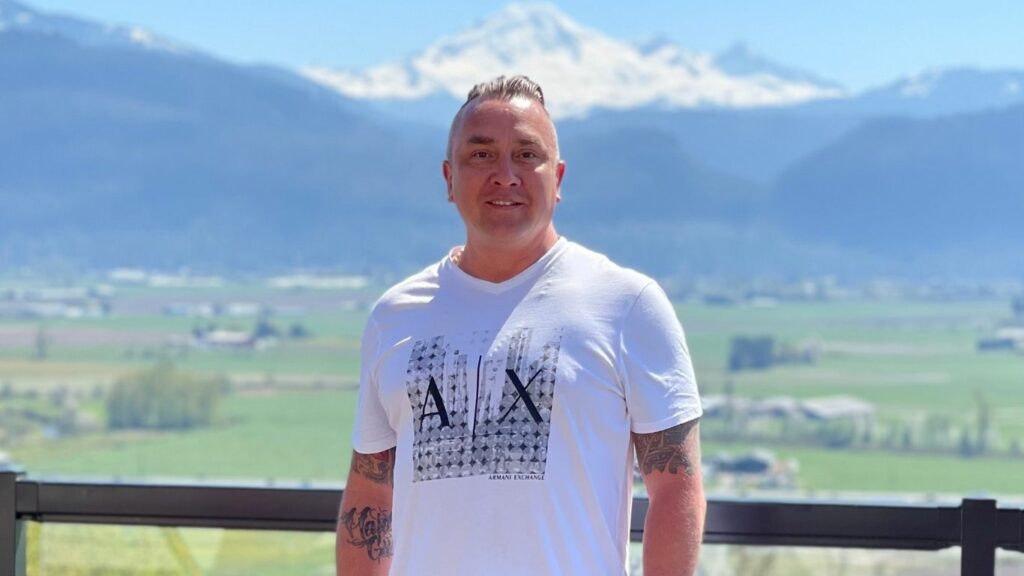
Like Penny at Williams Lake First Nation and Douglas with All Nations Cannabis, Eppinga says he sees the BC government taking an approach that seeks to provide paths into the legal market, rather than simply using a law enforcement approach through raids and arrests.
“They recently called us on a conference call and asked us what we think should be done, what’s happening right now, and how they can help level the playing field with these giant LPs and knowing that Indigenous companies are only a small portion of the licensed producers in Canada,” says Eppigna. “So part of reconciliation and all that is coming into play and I’m proud that this is happening. It’s warming my heart to see how the government is helping how they can.”
“They want us to do things legally and do them right for these communities. So that’s their main focus – to do it legal, do it right, get licensed and help with that where they can. They’re really trying to fast track the legal stores on the reserves to try and compete with the unlicensed facilities/stores located on First Nations land.”
He says he thinks more section 119 agreements and even grants similar to those provided to WLFN’s Sugar Cane facility will be announced this year.
“I think they did it in a different fashion in the past with things like raids of the stores, and I think they say this caused more problems than anything,” he continues. “So I think they looked to contact the stakeholders and applicants and see what they have to say about this process. And that’s what they have done with us, so I think that’s why we’re seeing talk about farmgate now, and it sounds like more grants for First Nations are coming.”
He says he thinks it’s the First Nations communities with more resources who are more likely to turn to the legal market, while others may opt to operate outside of provincial rules out of economic desperation, or a sense of rebellion.
“We want to fix those potholes in the soccer fields and the mould in the longhouses. We’re not here just to make money, we’re here to help our people as well. We want to help pave the roads. And that’s what really gets you success in life is when you give back to others, especially your own people.”
Alberta Eppinga, BC Cannabis Inc
“They have no money! They have their longhouses with mould, the soccer fields have holes, the busses to take the kids to school have no gas to take them. So some are doing it out of desperation, some do it just to rebel against the government, and some want to do it by working with the law and those seem to be the larger and more sophisticated bands…they have more businesses, more land, more economic opportunities.”
Eppinga says his goal with BC Cannabis is to create more economic opportunities in his community and others around BC.
“We want to fix those potholes in the soccer fields and the mould in the longhouses. We’re not here just to make money, we’re here to help our people as well. We want to help pave the roads. And that’s what really gets you success in life is when you give back to others, especially your own people.”
A path to reconciliation?
Douglas, at All Nations Cannabis’ FN Canna location in Chilliwack, says the ability for First Nations to grow and sell their own cannabis, all within their community, will be key to the BC government fulfilling their promise to seek reconciliation and their stated commitment to issues like the United Nations Declaration on the Rights of Indigenous Peoples (UNDRIP).
“One of the key things for First Nations is they want the ability to produce a product … from their facility and then sell it out of their store on the reserve,” the All Nations Cannabis CEO says.
“I think there’s significant momentum right now in that space and we just need that partner in the province now to get it across the final finish line. And when that happens I think you’re going to see significant success, not only for First Nations but for the provinces in general with First Nations in this industry.”
“It’s about developing a model that works for the province, that works for the First Nations, and that works for all the rest of the cannabis industry,” continues Douglas. “That’s the push, to find the model that works so you see more First Nations wanting to go down the licensed road rather than wanting to go down the Red Market avenue. Some may choose to do that, which in my opinion is their own choice, but providing that avenue down the licensed path is important if we want to accomplish the goals that the province has set out about creating a (diverse) cannabis industry.”
“I think there’s significant momentum right now in that space and we just need that partner in the province now to get it across the final finish line. And when that happens I think you’re going to see significant success, not only for First Nations but for the provinces in general with First Nations in this industry.”
Darwin Douglas, CEO of All Nations Cannabis
Dressler, from Sugar Cane Cannabis, gives similar advice for other First Nations seeking to enter the industry.
“Make sure that you have a clearly defined strategy. Know what you want to do and why, and how you propose to get there. Make sure you surround yourself with competent people who understand and support your goals and are not there merely out of self-interest. The cannabis industry is very expensive to enter – especially if you’re considering entering the world of cultivation/production. Make sure you have sufficient capital to fund your operations. It’s difficult to get banks to come to the table (even for legal operations) and there are, as of yet, relatively few grant or other programs that provide First Nations with reasonably easy access to funding to enter the cannabis industry.”














